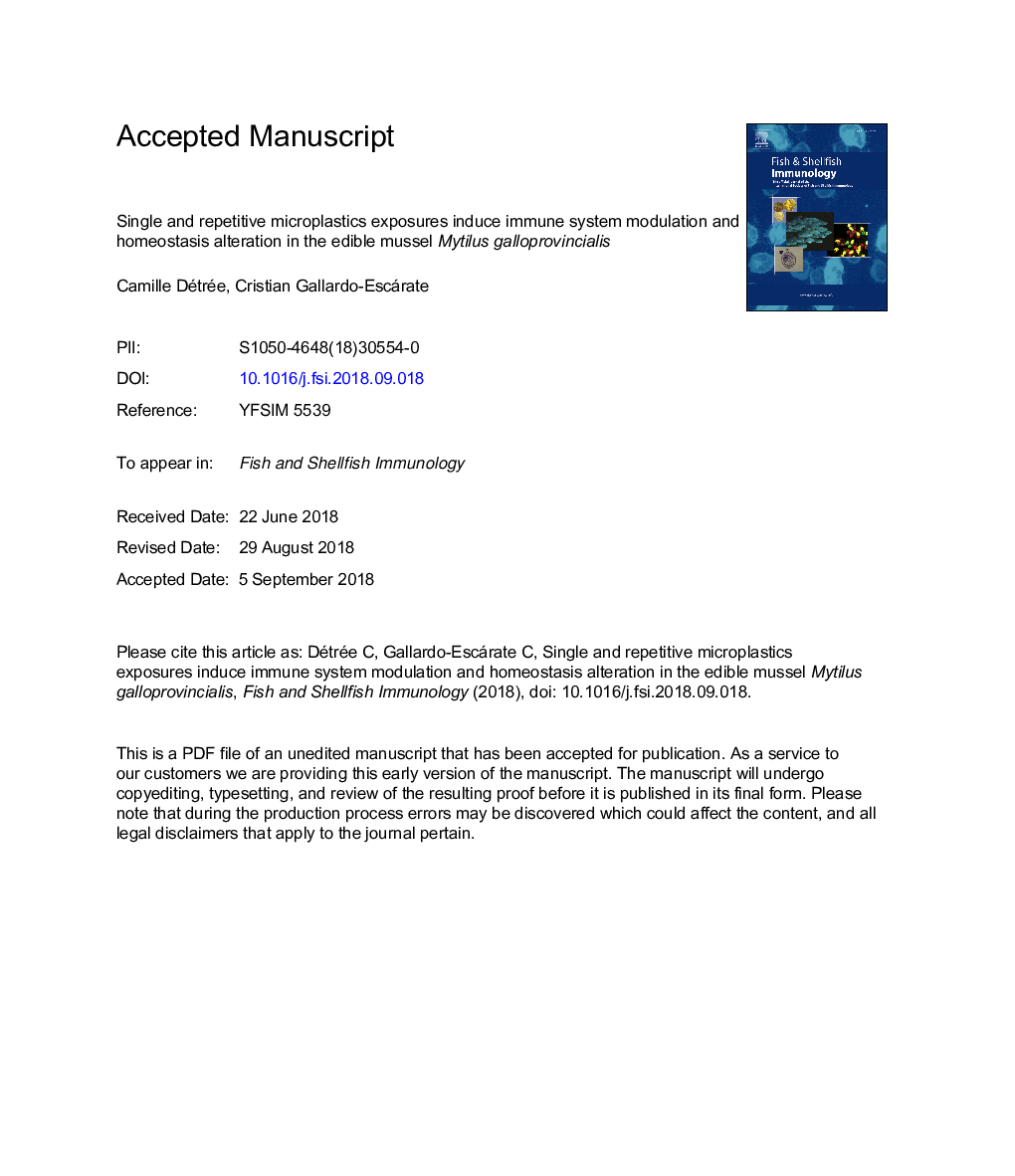| Article ID | Journal | Published Year | Pages | File Type |
|---|---|---|---|---|
| 10148310 | Fish & Shellfish Immunology | 2018 | 34 Pages |
Abstract
Seashore invertebrates such as mussels are exposed to multiple bouts of pollution related to human activities. Plastic debris originating from land-based activities are a concerning issue as they may be fragmented in smaller pieces (microplastics, < 5â¯mm diameter) which have an excellent potential for uptake by a large variety of animals. Here, we set out to explore the whole transcriptome profiling of Mytilus galloprovincialis associated with temporal variability of microplastics concentrations. Mussels were submitted to (i) a single 18 days-exposure to a concentration of microplastics found during pollution events (4.6 E+5 polyethylene microbeads Lâ1), (ii) a recovery period to investigate the reversibility of microplastics effects and (iii) a repeated exposure to microplastics to evidence acclimation to microplastics pollution events. Overall, 18 days-exposure to microplastics was mostly associated with disruption of mussel global homeostasis resulting in the production of stress and immune-related proteins and as a consequence, a diminution of energy allocated to growth. During the recovery period, a contrasting response was observed with the activation of apoptotic processes and the up-regulation of immune-receptors and stress-related proteins (glutathione peroxidase, hsp70) in mussels previously exposed to microplastics. These divergent responses, suggest that the establishment of compensatory mechanism as an attempt to recover, is not sufficient to counteract physiological stress induced by the first exposure. Finally, the differences observed in gene expression between single and repeated exposures to microplastics suggest, under the experimental conditions tested, that mussels may be able to establish a stress-memory upon microplastics exposure.
Keywords
Related Topics
Life Sciences
Agricultural and Biological Sciences
Aquatic Science
Authors
Camille Détrée, Cristian Gallardo-Escárate,
